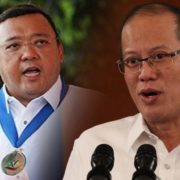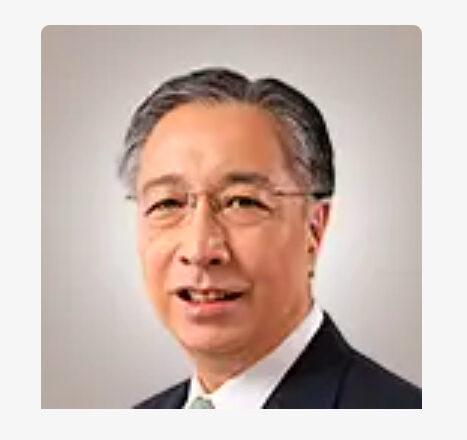More allies of former Philippine President Benigno Simeon “Noynoy” Aquino III should face charges in connection with the controversial Disbursement Acceleration Program (DAP), Malacañang said on Thursday, June 21.
The statement was made by Presidential Spokesperson Harry Roque a day after the Ombudsman ordered the filing of charges against Aquino for usurping Congress’ budgetary powers when he approved the DAP.
On the same day of Aquino’s indictment, President Rodrigo Duterte criticized Ombudsman Conchita Carpio Morales for the “selective indictment” against the previous administration over the DAP issue.
Roque said Duterte has obtained documents incriminating others related to the controversial economic stimulus project implemented by the past administration.
“Ang reklamo po talaga at hindi lang nanggagaling naman sa Presidente, ang kinasuhan lang sa DAP talaga iyong oposisyon noong mga panahon ni Presidente Aquino; kaya nga po ang reklamo ng marami – selective justice (The complaint — and this did not just come from president — is that those who were charged over the DAP are from the opposition during the time of President Aquino. Many are complaining about selective justice),” Roque said in a Palace press briefing.
Morales was accused of going against enemies of Aquino only by Duterte, adding that he would release more information about the DAP cases.
“I am sure po marami pang dapat kasuhan na hindi pa nakakasuhan at iyon po ang tinutukoy ng presidente na may hawak siyang mga dokumento, dahil ito po ay mga kaalyado ng dating administrasyon na hindi po nakasuhan (So I am sure many people who should have been charged have yet to be charged and that was what the president meant when he said he has documents. These are allies of the previous administration who have not been charged),” Roque added.
Duterte complained about the selective justice pursued by Ombudsman Conchita Carpio Morales with regard to the alleged irregular implementation of the DAP during his visit in Iloilo City on Wednesday, June 20.
He claimed that he is planning to publicize the information he obtained regarding those involved in the DAP, which the Ombudsman supposedly ignored.
“One day I will show to you the DAP, yung hindi niya ginalaw (the one she did not touch). We’ll publish it,” he said.
The Ombudsman, earlier, found probable cause to charge the former president before the Sandiganbayan with the usurpation of legislative powers in implementing the DAP, which is punishable with imprisonment ranging from six months and one day to six years.
Under Abad, the budget department allowed the withdrawal of P72 billion worth of unobligated funds of government agencies under the executive department. According to the officials of the previous administration, the disbursement was intended to spur economic activity.
Several acts under the DAP have been deemed unconstitutional by the Supreme Court for going against the constitutional doctrine of separation of powers — among them are the cross-border transfers of savings of the executive to augment funds of agencies outside the department and the withdrawal of unobligated allotments from implementing agencies and their use as savings before the end of a fiscal year.
Aquino’s political party, the Liberal Party, for its part, said the program sought to “deliver the services and infrastructure needed by the people” and was “guided by the laws available to the executive.”
Roque welcomed the indictment, but questioned the amount of time it took for the decision to come out.
“We welcome, of course, any effort to bring about accountability of public officers. However, if you will recall I was the one who argued at the Supreme Court against the constitutionality of DAP. Of course, I personally am asking why it took all this time before anyone could be charged with DAP,” he said.
Roque also questioned why the Ombudsman did not file heavier penalties against Aquino.
In an interview with ABS-CBN News Channel, the presidential spokesperson said, “I would have filed something more serious because the court was very clear that there was grave abuse of discretion and that is why it was invalidated, despite the fact that normally courts would assume presumption of regularity of discharge of function.”
“It was a very serious breach of the Constitution and I think, you know, charging him with something that would entail imprisonment of six months, which is probationable, is not proportionate to what the court decided – in my very own case,” he added.






